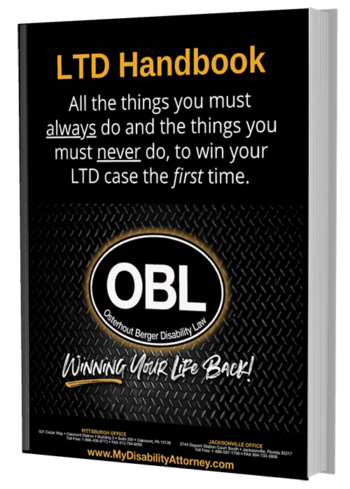A significant number of workers experience unexpected illnesses or injuries that prevent them from returning to their jobs either temporarily or permanently. Long Term disability insurance provides a safety net for these individuals, offering financial protection in case of disability. This coverage can be provided as part of your employer’s benefits package or purchased independently.
Long Term Disability Insurance Coverage and Benefit Options
It’s essential to understand the different coverage and benefit options available when selecting a Long Term disability insurance policy. The best protection may not be the cheapest option. Key factors to consider when choosing a policy include:
- Duration: Choose a policy that provides coverage for at least five years, ideally up to age 67.
- Own-occupation coverage: This option provides benefits as long as your disability prevents you from returning to your previous position, regardless of whether you can work in another occupation.
- Residual benefits: This option offers disability benefits if your condition partially disables you, reducing your ability to work more than part-time.
- Cost-of-living rider: This option adjusts the amount of your benefits payments according to inflation.
Requirements and Application Process
To apply for and receive benefits from your Long Term disability insurance coverage, you must meet several requirements:
- Your condition must have left you totally or partially disabled (if you have the residual benefits rider on your policy).
- Your doctor’s written opinion is crucial; they should provide a statement about how your condition impacts your ability to complete the functions of your job.
- You must have had full-time work, usually defined as at least 30 or 35 hours per week, before your injury, illness, or accident.
- There is an elimination period, typically ranging from 30 to 180 days, during which time you will not receive benefits after your disabling condition occurs.
The application process typically takes four to six weeks and requires submitting the application, documentation of your income, and a signed release allowing your insurance company to obtain copies of your medical records.
Denied Claims and ERISA Appeals
If your Long Term disability claim is denied, the team at Osterhout Berger Daley can help you navigate the complex appeals process. We have extensive experience with ERISA (Employee Retirement Income Security Act) appeals and can guide you through each stage, from gathering evidence to presenting your case in court.
Frequently Asked Questions
What is Long Term disability insurance?
Long Term disability insurance is a form of coverage that offers financial assistance by paying a percentage of your typical income if a disabling injury or illness prevents you from working. Some policies also provide partial disability coverage, which compensates you for a portion of your income if your condition only allows you to work part-time. Benefits commence after a specified elimination period, which ranges from three months to a year, based on your chosen coverage level or employer-provided benefits package.
How does Long Term disability insurance function?
When you have an eligible condition and your benefits claim is approved, Long Term disability insurance provides monthly payments equivalent to the chosen percentage of your previous income. These payments are tax-free. Coverage typically lasts for the policy’s term, which varies depending on your selected option. It’s crucial to pay your premiums consistently to avoid losing your benefits.
How long is Long Term disability insurance effective?
The duration of Long Term disability policies varies, with longer terms being more costly. It’s advisable to choose a policy that covers at least five years or ideally up to your normal Social Security retirement age, as many disabilities last longer than shorter terms.
What does Long Term disability insurance encompass?
Long Term disability insurance can cover instances when you’re unable to resume work in your prior occupation if you opt for own-occupation coverage over any-occupation coverage. This means you’ll receive benefits even if you can work in a different field. Additionally, with the partial disability option, benefits are provided if you can only work part-time due to your condition. Optional add-ons such as cost of living adjustments and unemployment waivers may also be available.
How much does Long Term disability insurance pay?
The payout from Long Term disability benefits depends on your previous salary and the percentage chosen when purchasing the policy. Typically, policies cover 50 to 60 percent of your former income, though some may cover up to 70 percent. Tax implications depend on whether you or your employer pay the premiums and the type of dollars used.
How much does Long Term disability insurance cost?
Premium costs for Long Term disability insurance depend on factors such as coverage options, elimination period length, group or individual rates, and your age at the time of purchase. Younger individuals pay lower premiums than older individuals. The average annual group rate premium is $226, but prices can vary among providers, making comparison shopping beneficial for individual policy purchasers.
What is a functional capacity evaluation?
A functional capacity evaluation (FCE) is a series of assessments required by insurance companies to determine how your disability affects your ability to perform job-related tasks and to verify the legitimacy of your claim. FCEs are sometimes used by insurers as grounds to deny claims.
What if my Long Term disability claim is denied?
If your Long Term disability claim is denied, seeking legal assistance from an experienced Long Term disability insurance attorney is recommended. They may help gather the necessary medical evidence, negotiate a settlement, or file a lawsuit against the insurance company to help you obtain the benefits you deserve.
Contact Osterhout Berger Daley Today
If you’re facing a denied Long Term disability claim or need assistance with an ERISA appeal, the experienced attorneys at Osterhout Berger Daley are here to help.

